 Source of logo/header: http://www.muddycup.com/mudlane/img/header.jpg
Source of logo/header: http://www.muddycup.com/mudlane/img/header.jpg
The article excerpted below reveals the soul of much of the anti-Wal-Mart movement. It is not anti-big; it is anti-competition and anti-free-choice.
How in the world did a guy who started his first coffee shop on Staten Island six years ago and now runs five others in far-flung Hudson Valley towns become the moral equivalent of Wal-Mart and Starbucks? “Well, it’s now official,” he announced last month on the Web site that promotes his Muddy Cup coffeehouses. “I am now head of the evil empire.”
. . .
And now the talk of New Paltz has to do with something far more important than mere marriage — coffee. More specifically it’s whether Mr. Svetz is plotting an act of entrepreneurial imperialism by presuming to open one of his Muddy Cup coffeehouses next door to the ultimate green icon in town, the funky 60 Main coffee shop operated in conjunction with the nonprofit New Paltz Cultural Collective.
. . .
Little did he know. As word filtered out he began receiving a blizzard of e-mail messages from 60 Main proponents, reacting to an urgent appeal from the collective. The messages threatened a boycott and told him to stay home. “If we can stop Wal-Mart we can stop you,” said one.
“We do not want to become yet another small town taken over by huge corporations,” read another.
. . .
Mr. Svetz is still stunned by the whole thing, particularly his sudden status as a giant corporation. He says that just as lots of bars coexist in town, several coffee shops can too. Maybe he’s right. Maybe he’s not. He’s not Wal-Mart, but maybe it’s fair to ask how many artist-friendly coffeehouses the village can support. But it’s hard to argue when he says that even in New Paltz, businesses generally have to compete to survive, not find a way to build a Berlin Wall around town.
“When a community starts building walls and saying you don’t belong here or you don’t think like we do, that can’t be a good thing,” he said.
For the full story, see:
(Note: ellipses added.)




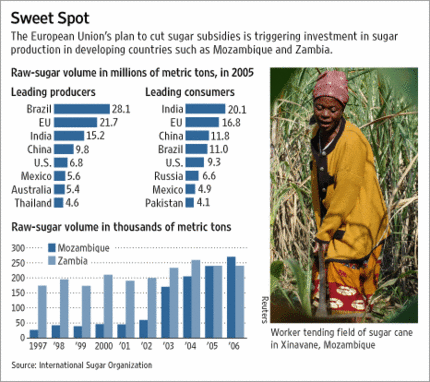
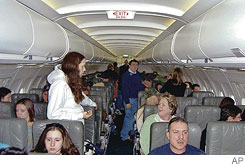 JetBlue passengers during the 8 and a half hours that they were stranded on the tarmac without being allowed to leave the plane on Weds., February 14th. Source of photo: online version of the WSJ article cited below.
JetBlue passengers during the 8 and a half hours that they were stranded on the tarmac without being allowed to leave the plane on Weds., February 14th. Source of photo: online version of the WSJ article cited below.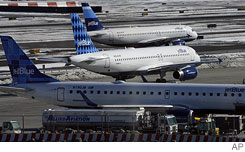 JetBlue planes on Mon., February 19th at JFK airport. Source of photo: online version of the WSJ article cited above.
JetBlue planes on Mon., February 19th at JFK airport. Source of photo: online version of the WSJ article cited above.
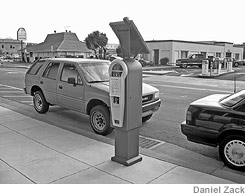 Two views of the new parking meters in Redwood, California. Source of photos: online version of the WSJ article cited below.
Two views of the new parking meters in Redwood, California. Source of photos: online version of the WSJ article cited below.
 Sensors such as the one embedded in the San Francisco street on the left, could eventually be used to help track parking violators, as imagined in the fictional picture on the right. Source of photos: online version of the WSJ article cited above.
Sensors such as the one embedded in the San Francisco street on the left, could eventually be used to help track parking violators, as imagined in the fictional picture on the right. Source of photos: online version of the WSJ article cited above. A giant German rabbit. Source of photo:
A giant German rabbit. Source of photo:  Historian and libertarian Ralph Raico. Source of photo:
Historian and libertarian Ralph Raico. Source of photo: 
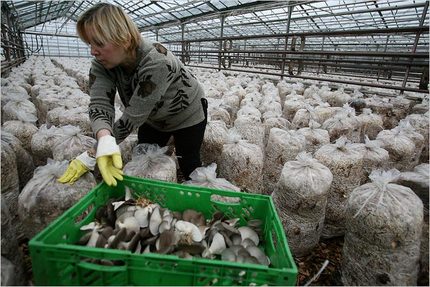
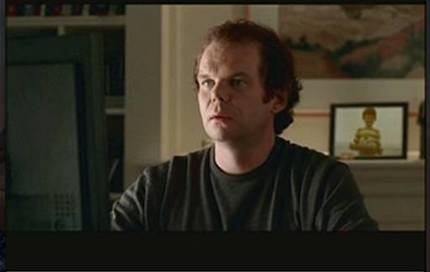
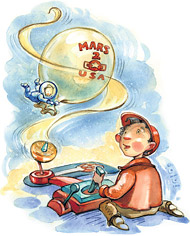 Drawing of Johnny Astro toy. Source of drawing: online version of the NYT article cited above.
Drawing of Johnny Astro toy. Source of drawing: online version of the NYT article cited above.